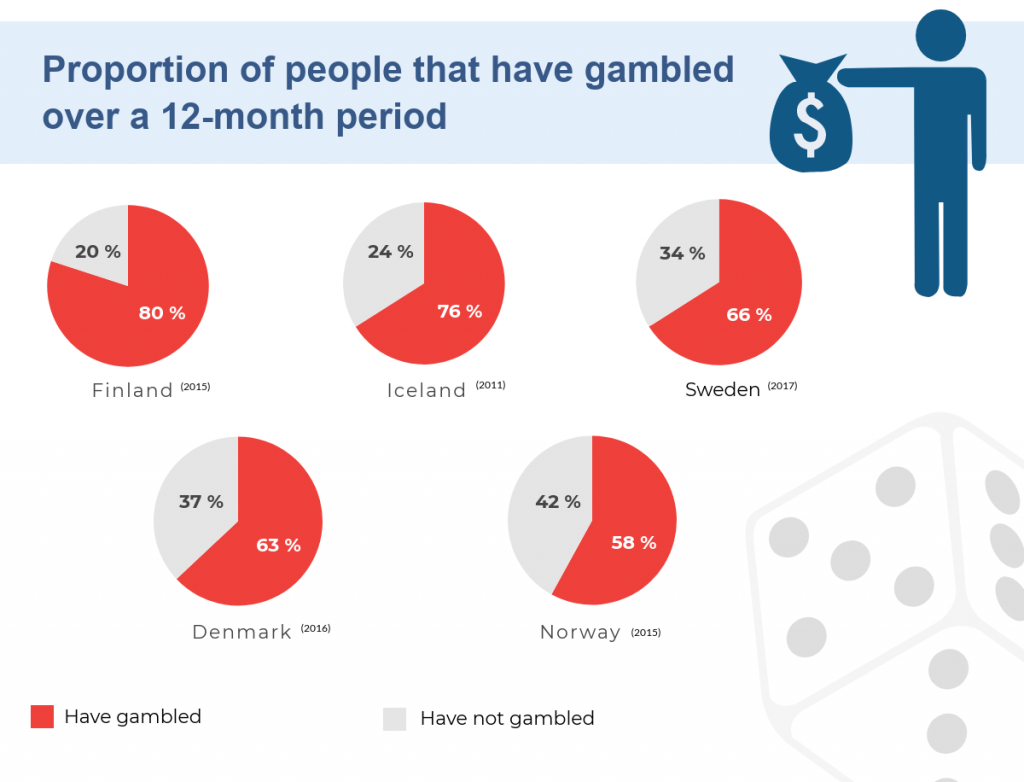| In other languages | English · español |
|---|
Global risk management platform helping online companies prevent fraud and minimize risk. The laws and culture around gambling in Sweden, from online casinos and games to the four land based casinos and lotteries.
As stated in our Privacy Policy, Wikimedia believes strongly in the values of privacy and transparency. To that end, we’ve created this Cookie Statement as a clear reference guide to the use of cookies on Wikimedia Sites. This Cookie Statement explains how we use cookies (and other locally stored data technologies), how we use third-party cookies, and how you can manage your cookie options. For more information on our privacy practices, please visit our Privacy Policy.
The Wikimedia Foundation, the non-profit organization that hosts the Wikimedia Sites, actively collects some types of information with a variety of commonly-used technologies. These generally include tracking pixels, JavaScript, and a variety of 'locally stored data' technologies, such as cookies and local storage.
What is a cookie?
Swedish Gaming Companies
A “cookie” is a tiny data file that we transfer onto your computer, mobile phone, or any other device that you use to access the Wikimedia Sites, and is generally used for authentication and tracking. Every cookie expires after a certain period of time, but that period varies depending on what the cookie is used for and how your browser is configured.
Cookies are often categorized based on how long they remain active before they expire. A “session” cookie is one that generally expires when you close your web browser or mobile application. A “persistent” cookie is one that remains in your device, even after you close your browser or mobile application. A persistent cookie expires according to the duration set by us, or when you delete it manually. You can learn more about cookies on Wikipedia.
You may remove or disable cookies through your browser settings. For more information on how to manage your cookie options, please see Section 3 of this Cookie Statement below.
Swedish Online Gambling Companies
For more information on this and other key terms that may be relevant, please read through our Privacy Policy Glossary.
What types of cookies does Wikimedia use and for what purposes?

Cookies are not required in order to read or edit the Wikimedia Sites. We use the information we receive from cookies and other locally-stored data technologies to make your experience with the Wikimedia Sites safer and better, to gain a greater understanding of user preferences and interactions with the Wikimedia Sites, and to generally improve our services. Cookies are required in order to login and for your edits to be associated to a user account; without cookies, your edits will be anonymous and unassociated with an account.
We use cookies, JavaScript, tracking pixels, and other locally-stored data technologies to accomplish different purposes. Below is a list of the categories of cookies we use and what they are used for.
Functionality:
These cookies help the Wikimedia Sites work and are essential in order to enable you to move around the Wikimedia site and use their features. These cookies are useful for remembering your username in the login field, maintaining your session and remembering previous actions, keeping you logged in (if selected), and more.
Here are a few examples:
| Name | Expires | Category | What does it do? |
|---|---|---|---|
| centralauth_Token {$wgCookiePrefix}* Token | 365 days, if the user chooses ‘Keep me logged in’. Otherwise omitted. | Functionality | Provides ‘Keep me logged in’ functionality. |
| {$wgCookiePrefix}* UserID, UserName | 365 days, if the user chooses ‘Keep me logged in’. Otherwise 30 days. | Functionality | Helps identify you to the wiki, and keeps you logged in. |
| loginnotify_prevlogins | 180 days | Functionality | Verifies that you are logging in from a known device. This affects the threshold for how many unsuccessful login attempts trigger a notification to the user. |
| centralauth_Session {$wgCookiePrefix}* Session | When user exits browser | Functionality | Manage sessions. Provides functionality such as logging in to Wikimedia Projects. |
Preferences:
These cookies store your preferences, so that they can be remembered the next time you use the Wikimedia Sites, for a more customized experience. These cookies are useful for recognizing and maintaining your language preference, remembering changes you have made to text size, fonts and other display preferences, so we can provide you with the look and feel that you want, and more.
Here are a few examples:
| Name | Expires | Category | What does it do? |
|---|---|---|---|
| stopMobileRedirect | 30 days | Preferences | Tells us not to redirect to the mobile site if you don’t like that. |
| uls-preferences | Local Storage, not a cookie | Preferences | Allows you to set preferences for the Universal Language Selector functionality. |
| hidewatchlistmessage- [watchlistMessageId] ● where watchlistMessageld is the Id of the message being hidden | 28 days | Preferences | Allows a user to hide a watchlist message. |
| userFontSize | Local Storage, not a cookie | Preferences | Keeps track of your preferred font size on the mobile site. |
| preferredEditor | Local Storage, not a cookie | Preferences | Keeps track of your preferred editor on the mobile site. |
Performance and Analysis:
These cookies count the number of visitors and collect information about how you use the Wikimedia Sites. This allows us to better understand your user experience on the Wikimedia Sites and helps us improve them for you and other users — for instance, by making sure users are finding what they need easily. Other examples include:
- remembering pages visited, and actions taken on the Wikimedia sites so we can optimize the pages;
- remembering if users get error messages from web pages;
- storing your most recently read articles directly on your device, so they can be retrieved quickly;
- remembering the topics searched so that we can optimize the search results we deliver to you;
- remembering the list of articles you are following on your watchlist so that we can recommend similar articles that you may be interested in.
Here are a few examples:
| Name | Expires | Category | What does it do? |
|---|---|---|---|
| centralnotice_bucket | 7 days | Performance and Analysis | Helps us understand the effectiveness of notices provided to users through the CentralNotice extension. For more details, see https://www.mediawiki.org/wiki/Extension:CentralNotice |
| ext.popups.core.previewCount | Local Storage, not a cookie | Performance and Analysis | Helps us understand the effectiveness of Hovercards. |
| WMF-Last-Access | 30 days | Performance and Analysis | Helps us calculate Unique devices accessing our site. See: https://blog.wikimedia.org/2016/03/30/unique-devices-dataset/ |

Third-Party:
We will never use third-party cookies on our wikis unless we get your permission to do so. These cookies would allow us to render services provided by third parties, such as “like” and “share” buttons. When a third party provides these kinds of services, they may require the use of a cookie in order to provide their services.
If you ever come across a third-party cookie transferred to your device during your access of the Wikimedia wiki sites, where you did not take any action to authorize the use and/or transfer of that cookie (such as one that may have been mistakenly placed by another user or administrator), please report that cookie to us at privacy@wikimedia.org.
A note about Wikimedia sites hosted by WordPress:

Some non-wiki Wikimedia Foundation sites are hosted by a third-party service provider, WordPress VIP. These sites may have the WordPress Stats module enabled. Stats is a service that allows us to understand how many visitors we get to our WordPress-hosted non-wiki sites, their location by country, and which pages, posts and links are the most popular. Only the Wikimedia Foundation and the service provider, Automattic/WordPress, have access to the raw Stats data, which is retained for a maximum of 30 days. For more information about Stats, see WordPress’ support page on the module.

What are my cookie options?
While this is not a comprehensive list, below are some of the things that you can do to limit use of cookies and other locally-stored data technologies on your device. While cookies and other locally-stored data technologies may not be necessary to use our sites, some features may not function properly if you disable them.
You can:
- remove or disable specific locally-stored data on your browser’s settings (you can reset your web browser to refuse all cookies or to indicate when a cookie is being sent);
- use a browser that can block third-party cookies; or
- install a plug-in to block locally-stored data, if one is available.
Turning off the browser’s cookies will prevent tracking pixels from tracking your specific activity. A tracking pixel may still record an anonymous visit from your IP address, but unique information will not be recorded. If you do not want to receive tracking pixels, you will need to disable HTML images in your browser-based email client, and that may affect your ability to view images in other emails that you receive.

Where can I find more information?
Please read through our Privacy Policy for more information. If you have any further questions, contact privacywikimedia.org.
Thanks!
Please note that in the event of any differences in meaning or interpretation between the original English version of this document and a translation, the original English version takes precedence.
The gambling industry was largely created by Swedish interests and has for a long time been run by Swedish entrepreneurs. Several of the gambling companies are listed on the Stockholm Stock Exchange. Sweden has also been a leader in the development of other types of Internet services that are used globally, for example Spotify and Skype.
Swedish Gambling Companies
The Stockholm Chamber of Commerce states that Stockholm is one of few cities in the world that attracts this type of new industry. The gambling industry should therefore be seen in a wider societal perspective in terms of the ability to attract investment to Sweden’s service sector..
“The Swedish online gambling industry and conditions for gambling operations within Sweden” is a report by Henrik Jordahl, Associate Professor of economics and Program Director at the Institute of Industrial Economics, and David Sundén PhD, which was presented in December 2016. In the report, the authors examined the Swedish online gambling industry’s economic importance for Sweden as well as its ability to operate in the country. They concluded that the future reregulation of the gambling market should take into account the industrial perspective and the gambling companies’ points of contact with other Swedish tech and Internet companies.
Read the full report here:
English version
Swedish version
Latest Pages